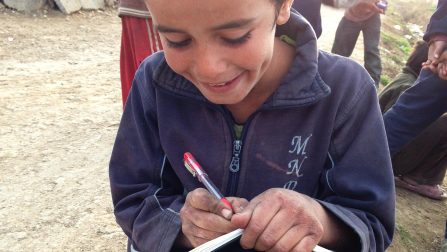War stokes further growth in forced displacement in first half 2014
The UN refugee agency on Tuesday reported that war in the Middle East, Africa and elsewhere had uprooted an estimated 5.5 million people during the first six months of 2014, signalling a further rise in the number of people forcibly displaced.
UNHCR’s new “Mid-Year Trends 2014” report shows that of the 5.5 million who were newly displaced, 1.4 million fled across international borders becoming refugees, while the rest were displaced within their own countries. Taking into account existing displaced populations, data revisions, voluntary returns and resettlement, the number of people being helped by UNHCR stood at 46.3 million as of mid-2014 – some 3.4 million more than at the end of 2013 and a record high.
Among the report’s main findings are that Syrians, for the first time, have become the largest refugee population under UNHCR’s mandate (Palestinians in the Middle East fall under the care of the UN Relief and Works Agency), overtaking Afghans, who had held that position for more than three decades. At more than 3 million as of June 2014, Syrian refugees now account for 23 per cent of all refugees being helped by UNHCR worldwide.
Despite dropping to second place, the 2.7 million Afghan refugees worldwide remain the largest protracted (at least five years) refugee population under UNHCR care. After Syria and Afghanistan, the leading countries of origin of refugees are Somalia (1.1 million), Sudan (670,000), South Sudan (509,000), the Democratic Republic of the Congo (493,000), Myanmar (480,000) and Iraq (426,000).
Pakistan, which hosts 1.6 million Afghan refugees, remains the biggest host country in absolute terms. Other countries with large refugee populations are Lebanon (1.1 million), Iran (982,000), Turkey (824,000), Jordan (737,000), Ethiopia (588,000), Kenya (537,000) and Chad (455,000).
By comparing the number of refugees to the size of a country’s population or economy, UNHCR’s report puts the contribution made by host nations into context: Relative to the sizes of their populations Lebanon and Jordan host the largest number of refugees, while relative to the sizes of their economies the burdens carried by Ethiopia and Pakistan are greatest.
In all, the number of refugees under UNHCR’s mandate reached 13 million by mid-year, the highest since 1996, while the total number of internally displaced people protected or assisted by the agency reached a new high of 26 million. As UNHCR only provides help for the internally displaced in countries where governments request its involvement, this figure does not include all internally displaced people worldwide.
“In 2014 we have seen the number of people under our care grow to unprecedented levels. As long as the international community continues to fail to find political solutions to existing conflicts and to prevent new ones from starting, we will continue to have to deal with the dramatic humanitarian consequences,” said UN High Commissioner for Refugees António Guterres.
“The economic, social and human cost of caring for refugees and the internally displaced is being borne mostly by poor communities, those who are least able to afford it. Enhanced international solidarity is a must if we want to avoid the risk of more and more vulnerable people being left without proper support.”
Another major finding in the report is the shift in the regional distribution of refugee populations. Until last year, the region hosting the largest refugee population was Asia and the Pacific. As a result of the crisis in Syria, the Middle East and North Africa have now become the regions hosting the largest number of refugees.
UNHCR’s Mid-Year Trends 2014 report is based on data from governments and the organization’s worldwide offices. As information available to UNHCR at this point in the year is incomplete it does not show total forced displacement globally (those figures are presented in June each year in UNHCR’s annual “Global Trends” report, which as of end 2013 showed that 51.2 million people were forcibly displaced worldwide). Nonetheless, the data it presents is a major component of the global total and an important indicator of worldwide refugee and IDP trends.
The full report can be downloaded here: http://unhcr.org/54aa91d89.html
Page 4 of 6
-
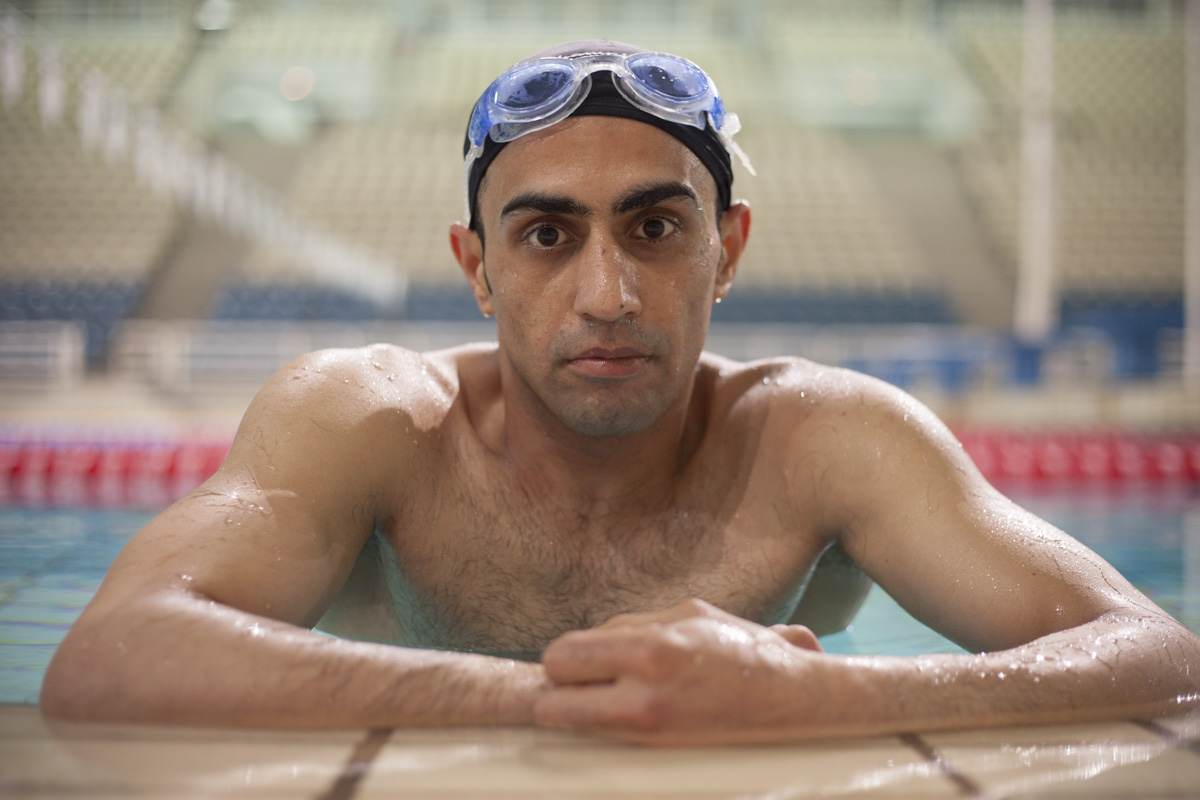
Displaced athletes to make historic debut at Paralympic Games in Rio
28 Aug 2016GENEVA – Athletes with disabilities have vied for glory at the Paralympic Games since 1960. This summer, for the first time, para-athletes who have faced the additional challenge of being displaced from their homeland will compete in Rio de Janeiro as the Independent Paralympic Athletes Team. The competitors, who are […]
-
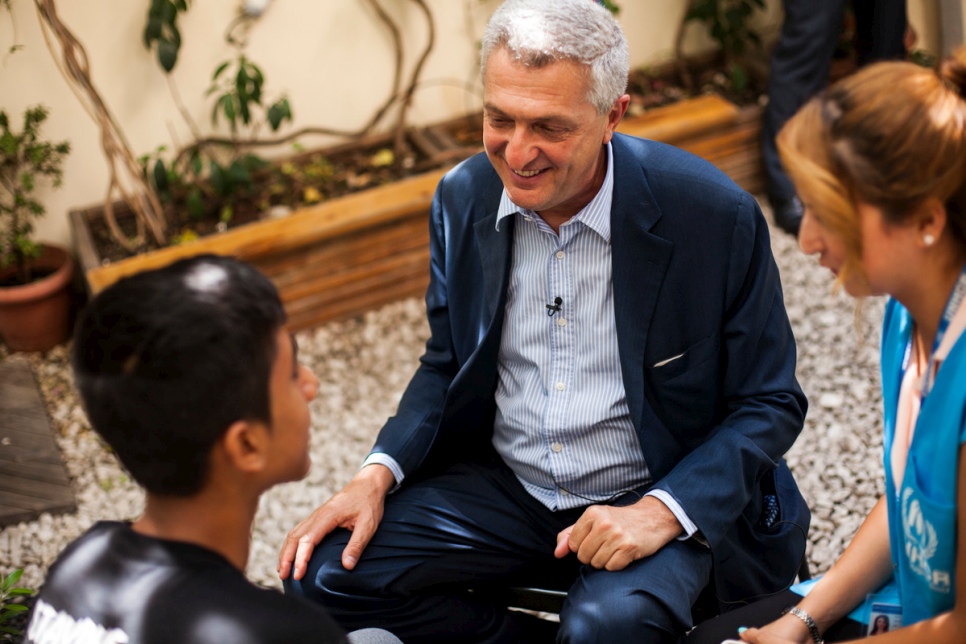
UNHCR chief says Greece needs EU help to manage its refugee crisis
25 Aug 2016ATHENS, Greece – Greece still faces great challenges in managing its refugee crisis, particularly if European Union countries do not step up their relocation and family reunion programmes, UN High Commissioner for Refugees Filippo Grandi said on Wednesday during an official visit to the country. Greece’s shores were the gateway […]
-

Teen journalist who fled Afghanistan writes of courage and sorrow
22 Jul 2016BAD FALLINGBOSTEL, Germany – We believe that water is life, but sometimes it stands for the opposite: death. I thought a lot about this when I faced death in the middle of the dreadful and dangerous waters between Turkey and Greece, the place where hundreds of people have died. When […]
-
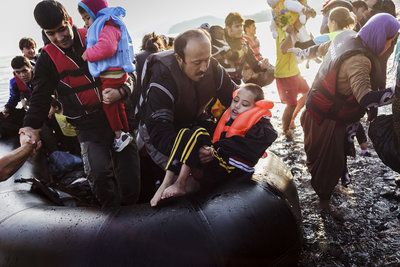
With 1 human in every 113 affected, forced displacement hits record high
20 Jun 2016Conflict and persecution caused global forced displacement to escalate sharply in 2015, reaching the highest level ever recorded and representing immense human suffering, according to a report released today by UNHCR, the UN Refugee Agency. UNHCR’s annual Global Trends report, which tracks forced displacement worldwide based on data from governments, […]
-
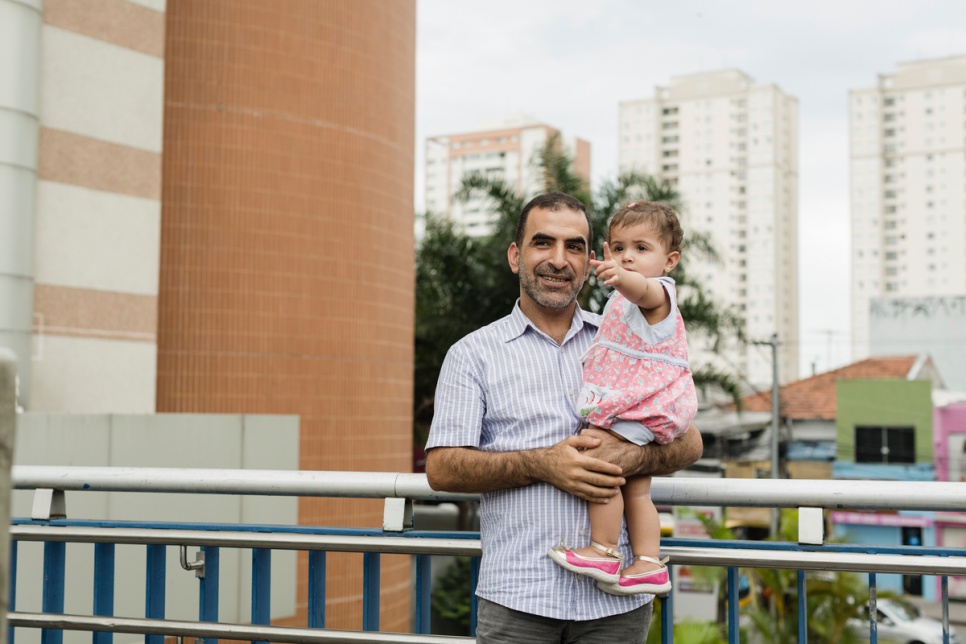
UNHCR: 1 in 10 Syrian refugees will need resettling
29 Mar 2016Resettled Syrian refugee Khaled poses for a portrait with his daughter, Yara, 1, in downtown Sao Paulo, Brazil. © UNHCR/G.Morales GENEVA, March 29 (UNHCR) – The UN Refugee Agency is hosting tomorrow (March 30) a one-day, high-level conference in Geneva focusing on refugees from Syria and the need for generating […]
-
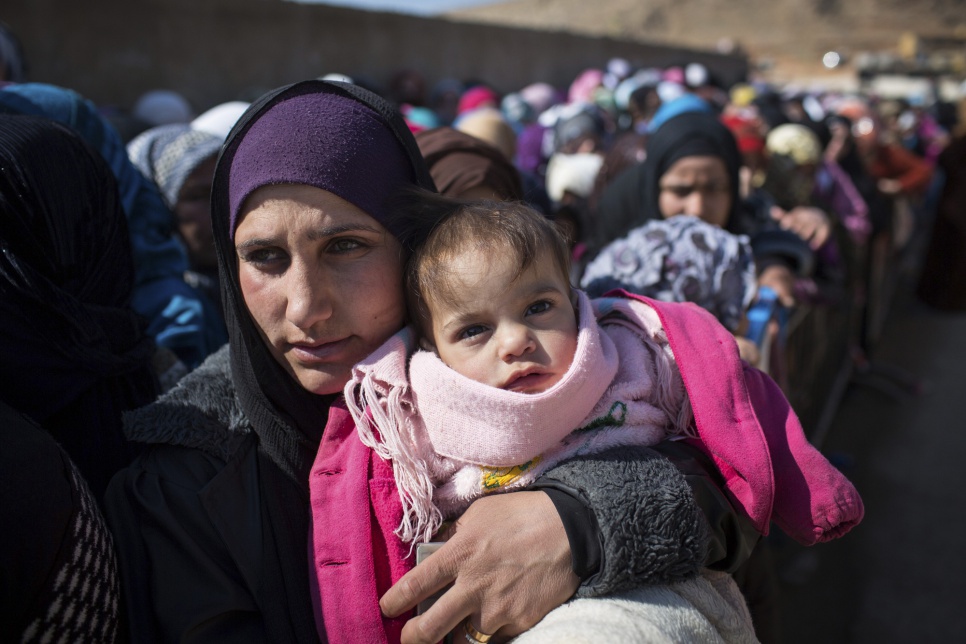
Syria conflict at five years
15 Mar 2016GENEVA, March 15 (UNHCR) – As Syria’s war reaches another grim milestone today, refugees fleeing the five-year conflict face greater hurdles to finding safety while international solidarity with its victims is failing to match and reflect the scale and seriousness of the humanitarian tragedy. “Syria is the biggest humanitarian and […]
-
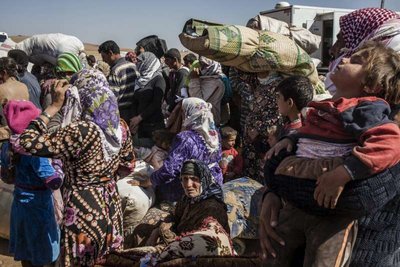
UNHCR’s reaction to Statement of the EU Heads of State and Government of Turkey, 7 March
8 Mar 2016UNHCR has taken note of the Statement of the EU Heads of State and Government of Turkey last night and we are concerned with some aspects of the proposal. Turkey hosts close to 3 million refugees and has made enormous contributions for years and just recently adopted a work regulation […]
-
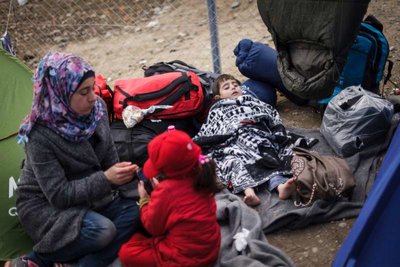
UNHCR: 6 steps towards solving the refugee situation in Europe
4 Mar 2016Ahead of a meeting of heads of state of government of the European Union (EU) with Turkey on 7 March in Brussels, UNHCR, the UN Refugee Agency, is today issuing recommendations aimed at helping States solve the refugee situation in Europe. The situation is quickly deteriorating with around 30,000 people […]
-
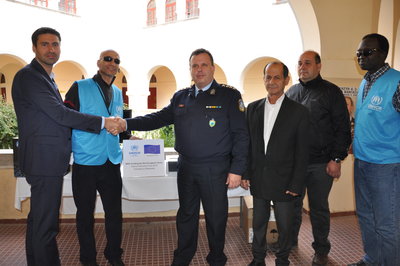
UNHCR expands its support to the temporary accommodation of new arrivals in Kalymnos and their registration in Kos
27 Feb 2016UNHCR’s Representation in Greece expanded yesterday its support to the temporary accommodation of new arrivals in Kalymnos, by installing new hygiene facilities at the island’s port. In nearby Kos, the local office of the UN Refugee Agency furthered its support to the registration procedure by handing over today a series […]
-
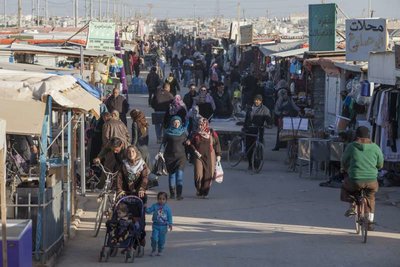
OECD and UNHCR call for scaling up integration policies in favour of refugees
28 Jan 2016The heads of the OECD and UNHCR, at a joint high-level Conference on the integration of beneficiaries of international protection in Paris today, have called on governments to scale up their efforts to help refugees integrate and contribute to the societies and economies of Europe. In 2015, more than 1 […]
In This Section

Thematic film screenings on migration
Athens, 17 September 2020 – The Greek mission of the International Organization for Migration (IOM) and UNHCR, the UN Refugee Agency, in Greece, with the support of the Municipality of Ioannina, are co-organizing a thematic cycle of film screenings. The event aims to create an open channel of communication between […]


